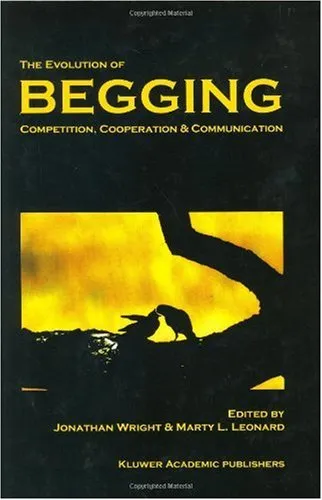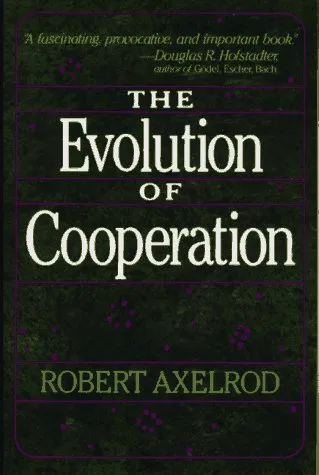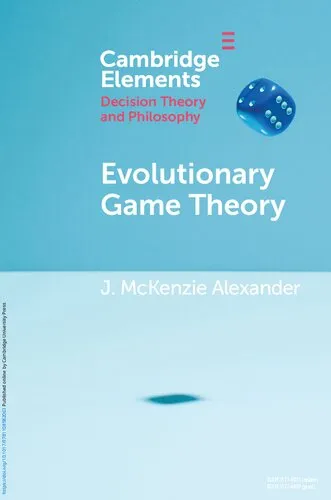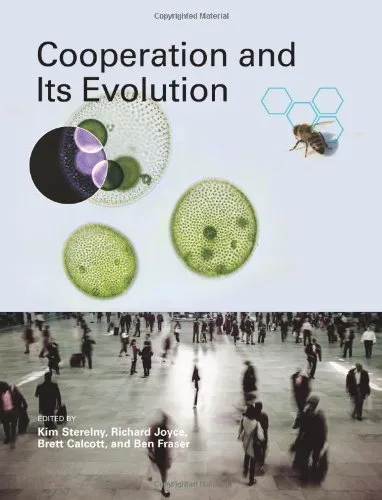The Evolution of Begging: Competition, Cooperation and Communication
4.0
Reviews from our users

You Can Ask your questions from this book's AI after Login
Each download or ask from book AI costs 2 points. To earn more free points, please visit the Points Guide Page and complete some valuable actions.Related Refrences:
Introduction to "The Evolution of Begging: Competition, Cooperation and Communication"
"The Evolution of Begging: Competition, Cooperation and Communication" is an academically rich and thought-provoking book that delves deep into the intriguing behaviors and mechanisms of begging in a variety of species. Edited by J. Wright and M.L. Leonard, this book provides a comprehensive exploration of the interplay between competition, cooperation, and communication in the evolution of begging strategies, with a particular focus on how these behaviors manifest in animals seeking resources like food and parental care. This detailed and structured volume is a must-read for those interested in animal behavior, evolutionary biology, and the underlying dynamics of social interactions.
Detailed Summary of the Book
Begging, in its biological sense, refers to the distinct behaviors organisms use to solicit resources from others, whether it's a chick requesting food from a parent or an animal appealing to a potential helper. This book explores the evolutionary roots of such behaviors and highlights the reasoning behind their appearance in the natural world. Through a collection of research-driven chapters authored by leading experts, "The Evolution of Begging" examines how biological and environmental factors shape begging across species.
The editors set the stage by laying out the fundamental principles of natural selection and how it influences communication systems, particularly those centered around begging. Each chapter adds depth to these ideas by addressing core topics, such as the costs and benefits of begging signals, how competition among siblings influences the intensity of begging, and how parents assess and respond to these signals.
The book also places significant emphasis on the balance between cooperation and conflict in begging interactions. While begging is often seen as a source of competition—whether between siblings or conspecifics—it also requires a certain degree of cooperation to ensure mutual survival. The authors explore how these dynamics might be shaped by ecological contexts, genetic predispositions, and social variables, offering readers a nuanced understanding of the factors driving this behavior.
In addition, "The Evolution of Begging" ties together theoretical and empirical data to emphasize the adaptive nature of begging. It showcases key studies on species ranging from birds to other animals, drawing parallels and identifying common threads in how individuals signal need and negotiate resources. By addressing both sides of the exchange—the beggar and the provider—the book provides a holistic perspective on this fascinating topic.
Key Takeaways
- Begging strategies are shaped by the dual forces of competition and cooperation, ensuring they are adaptive under specific environmental and social conditions.
- Parents or resource providers are not always passive participants in this dynamic—selection pressures also shape their responses to begging signals.
- The intensity and form of begging signals often reflect trade-offs between the costs (e.g., energy expenditure, increased predation risk) and benefits (e.g., securing resources).
- Begging behaviors reveal important insights into broader evolutionary processes, including conflict resolution, signal honesty, and resource allocation.
- The study of begging illustrates how communication evolves under diverse ecological contexts, contributing to a broader understanding of signaling systems in nature.
Famous Quotes from the Book
"Begging, at its core, is a powerful example of the interplay between necessity and strategy, where survival often depends on the ability to convey need persuasively."
"To understand begging is to follow the evolutionary threads of communication, cooperation, and conflict woven into the fabric of life."
Why This Book Matters
The study of begging behaviors is not merely an academic pursuit—it addresses fundamental questions about survival, communication, and the relationships that define the natural world. "The Evolution of Begging" stands out as a critical contribution to the field of evolutionary biology due to its interdisciplinary approach, bringing together perspectives from behavioral ecology, evolutionary theory, and empirical research.
By dissecting the multifaceted dynamics of begging, the book encourages readers to think critically about the balance between competition and cooperation in social interactions, both within and across species. It also sheds light on broader themes such as conflict resolution and decision-making in biological systems, which have implications for research well beyond animal behavior.
For educators, researchers, and anyone with a curiosity about the complexities of life on Earth, this book offers a treasure trove of insights. Its in-depth focus on a seemingly narrow topic illuminates universal principles of evolutionary theory, making it a vital resource for both specialists and generalists alike.
In sum, "The Evolution of Begging: Competition, Cooperation and Communication" is an essential read for anyone seeking to understand how life’s challenges give rise to extraordinary adaptations and behaviors.
Free Direct Download
You Can Download this book after Login
Accessing books through legal platforms and public libraries not only supports the rights of authors and publishers but also contributes to the sustainability of reading culture. Before downloading, please take a moment to consider these options.
Find this book on other platforms:
WorldCat helps you find books in libraries worldwide.
See ratings, reviews, and discussions on Goodreads.
Find and buy rare or used books on AbeBooks.
1420
بازدید4.0
امتیاز0
نظر98%
رضایتReviews:
4.0
Based on 0 users review
Questions & Answers
Ask questions about this book or help others by answering
No questions yet. Be the first to ask!













